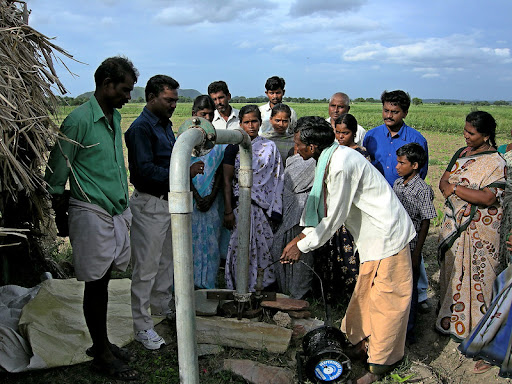Overview
Researchers
Ram Fishman
Senior lecturer of Public Policy at Tel Aviv University
- Country
- India
- Timeline
- 01/01/2023 - 04/01/2023
- Previously Funded Stages
- Pilot
- Constraints
- Information
- Technology Category
- Extension, Irrigation, Soil Testing

Photo credit: Jake Burke | Flickr
Irrigation may improve agricultural productivity by allowing farmers to cultivate multiple harvests per year, grow water-intensive crops, and reduce production uncertainty. However, poor water management practices lead to groundwater depletion. One reason that farmers may not adopt efficient irrigation practices is lack of financial incentives to do so; in many regions, farmers do not pay to use groundwater nor for the electricity required for water extraction. Another reason may be lack of information on how much water is optimal for the plant versus what is actually applied. Smart irrigation technologies, such as soil sensors placed on the ground near the base of the plant, measure water content in the soil and can determine optimal water usage. However, small-scale producers rarely have access to technologies that provide optimal water usage information.
Researchers are conducting a pilot to assess whether installing water meters, smart irrigation technologies, and a combination of the two affects the amount of water used for irrigation by small-scale producers in Gujarat, India. While all participants receive generic irrigation recommendations for their crop from government extension agents, those who receive smart irrigation technologies will be instructed to follow the smart recommendations. Researchers will measure outcomes on water usage and agricultural productivity and conduct qualitative interviews with participants to inform a future randomized evaluation to understand the impacts of better irrigation information on agricultural production.